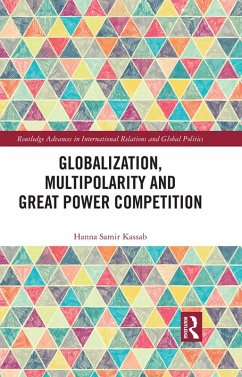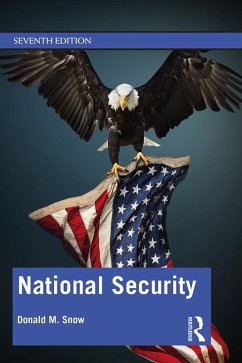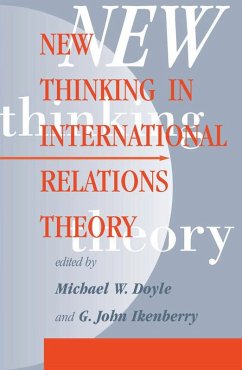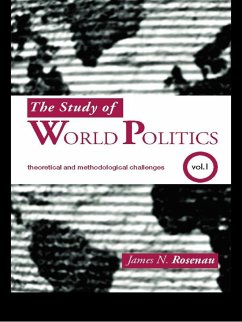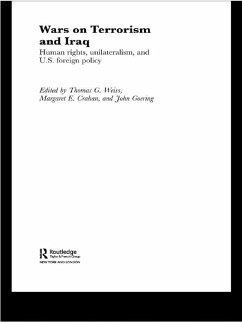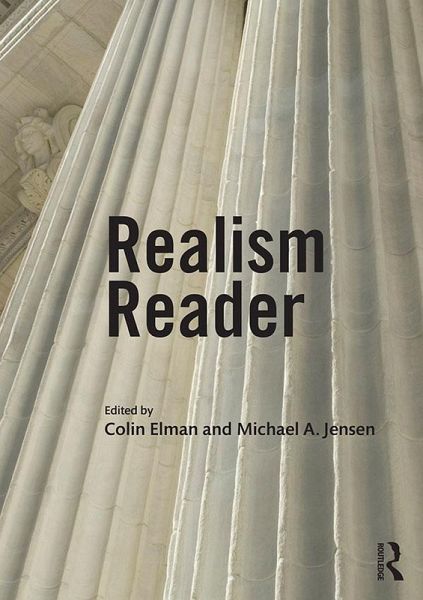
The Realism Reader (eBook, PDF)
Versandkostenfrei!
Sofort per Download lieferbar
63,95 €
inkl. MwSt.
Weitere Ausgaben:

PAYBACK Punkte
32 °P sammeln!
The Realism Reader provides broad coverage of a centrally important tradition in the study of foreign policy and international politics. After some years in the doldrums, political realism is again in contention as a leading tradition in the international relations sub-field.Divided into three main sections, the book covers seven different and distinctive approaches within the realist tradition: classical realism, balance of power theory, neorealism, defensive structural realism, offensive structural realism, rise and fall realism, and neoclassical realism. The middle section of the volume cov...
The Realism Reader provides broad coverage of a centrally important tradition in the study of foreign policy and international politics. After some years in the doldrums, political realism is again in contention as a leading tradition in the international relations sub-field.
Divided into three main sections, the book covers seven different and distinctive approaches within the realist tradition: classical realism, balance of power theory, neorealism, defensive structural realism, offensive structural realism, rise and fall realism, and neoclassical realism. The middle section of the volume covers realism's engagement with critiques levelled by liberalism, institutionalism, and constructivism and the English School. The final section of the book provides materials on realism's engagement with some contemporary issues in international politics, with collections on United States (U.S.) hegemony, European cooperation, and whether future threats will arise from non-state actors or the rise of competing great powers.
The book offers a logically coherent and manageable framework for organizing the realist canon, and provides exemplary literature in each of the traditions and dialogues which are included in the volume. Offering substantial commentary and analysis and including enhanced pedagogy to facilitate student learning, The Realism Reader will provide a 'one-stop-shop' for undergraduates and masters students taking a course in contemporary international relations theory, with a particular focus on realism.
Divided into three main sections, the book covers seven different and distinctive approaches within the realist tradition: classical realism, balance of power theory, neorealism, defensive structural realism, offensive structural realism, rise and fall realism, and neoclassical realism. The middle section of the volume covers realism's engagement with critiques levelled by liberalism, institutionalism, and constructivism and the English School. The final section of the book provides materials on realism's engagement with some contemporary issues in international politics, with collections on United States (U.S.) hegemony, European cooperation, and whether future threats will arise from non-state actors or the rise of competing great powers.
The book offers a logically coherent and manageable framework for organizing the realist canon, and provides exemplary literature in each of the traditions and dialogues which are included in the volume. Offering substantial commentary and analysis and including enhanced pedagogy to facilitate student learning, The Realism Reader will provide a 'one-stop-shop' for undergraduates and masters students taking a course in contemporary international relations theory, with a particular focus on realism.
Dieser Download kann aus rechtlichen Gründen nur mit Rechnungsadresse in A, B, BG, CY, CZ, D, DK, EW, E, FIN, F, GR, HR, H, IRL, I, LT, L, LR, M, NL, PL, P, R, S, SLO, SK ausgeliefert werden.






